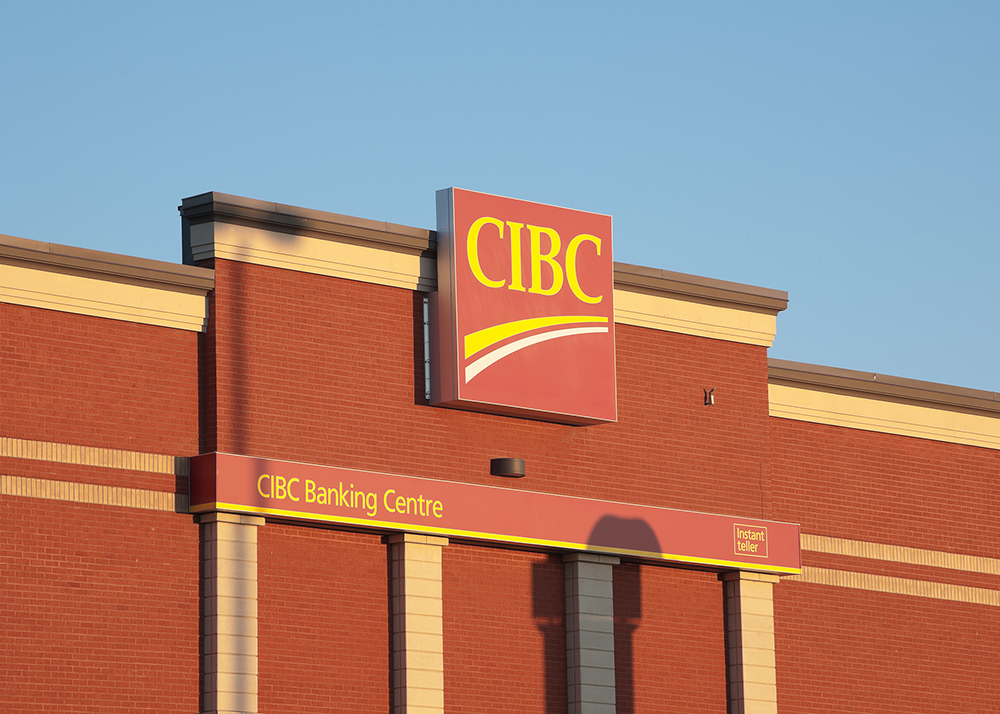Browse "Finance"
-
Article
Accounting
Accounting is the process of measuring and reporting on the financial activities of organizations. Accountants must select from a large number of events those which affect an organization and can be measured financially; the events selected and measured are then presented in financial reports.
"https://development.thecanadianencyclopedia.ca/images/tce_placeholder.jpg?v=e9dca980c9bdb3aa11e832e7ea94f5d9" // resources/views/front/categories/view.blade.php
https://development.thecanadianencyclopedia.ca/images/tce_placeholder.jpg?v=e9dca980c9bdb3aa11e832e7ea94f5d9
-
Article
Alberta Heritage Savings Trust Fund
The Alberta Heritage Savings Trust Fund was established in 1976 by an Act of Legislature with initial resources of $1.5 billion in cash and assets from the General Revenue Fund. Its purpose is to save and invest revenues from Alberta's oil and gas.
"https://development.thecanadianencyclopedia.ca/images/tce_placeholder.jpg?v=e9dca980c9bdb3aa11e832e7ea94f5d9" // resources/views/front/categories/view.blade.php
https://development.thecanadianencyclopedia.ca/images/tce_placeholder.jpg?v=e9dca980c9bdb3aa11e832e7ea94f5d9
-
Article
Assets in Canada
An asset is a useful and desirable thing or quality. The word is most often used in business, financial or accounting contexts. Canada has some of the world’s most impressive physical and natural resources. These resources may be viewed as “national assets.” The concept is also useful in personal finance, as housing is most Canadian families’ largest asset.
"https://d2ttikhf7xbzbs.cloudfront.net/media/new_article_images/EconomicsSummaries/dreamstime_xxl_83249705.jpg" // resources/views/front/categories/view.blade.php
https://d2ttikhf7xbzbs.cloudfront.net/media/new_article_images/EconomicsSummaries/dreamstime_xxl_83249705.jpg
-
Article
Bailouts in Canada
A bailout consists of providing financial help to a business or to the wider economy during times of trouble.
"https://d2ttikhf7xbzbs.cloudfront.net/media/new_article_images/EconomicsSummaries/dreamstime_xl_82622075.jpg" // resources/views/front/categories/view.blade.php
https://d2ttikhf7xbzbs.cloudfront.net/media/new_article_images/EconomicsSummaries/dreamstime_xl_82622075.jpg
-
Article
Balance of Payments
The balance of payments, or balance of international payments, is an accounting statement of the economic transactions that have taken place between the residents of one country (including its government) and the residents of other countries during a specified time, usually a year or a quarter.
"https://development.thecanadianencyclopedia.ca/images/tce_placeholder.jpg?v=e9dca980c9bdb3aa11e832e7ea94f5d9" // resources/views/front/categories/view.blade.php
https://development.thecanadianencyclopedia.ca/images/tce_placeholder.jpg?v=e9dca980c9bdb3aa11e832e7ea94f5d9
-
Article
Bankruptcy
Bankruptcy is a legal process, governed by the Bankruptcy and Insolvency Act, that provides financial relief for debtors and a protection for creditors.
"https://development.thecanadianencyclopedia.ca/images/tce_placeholder.jpg?v=e9dca980c9bdb3aa11e832e7ea94f5d9" // resources/views/front/categories/view.blade.php
https://development.thecanadianencyclopedia.ca/images/tce_placeholder.jpg?v=e9dca980c9bdb3aa11e832e7ea94f5d9
-
Article
Bonds in Canada
A bond is a tool that businesses, governments and other organizations use to borrow money. More specifically, it is a loan agreement through which the bond issuer (the borrower) agrees to pay the lender a specified amount by a certain date. Bond agreements generally also include interest payments. While the borrower usually pays the lender interest on the loan, bonds sometimes have negative interest, meaning the lender pays interest to hold the bond. Bonds and debt financing are important tools for funding large infrastructure projects and wars. (See Canada Savings Bonds; Victory Loans.)
"https://d2ttikhf7xbzbs.cloudfront.net/media/new_article_images/EconomicsSummaries/Bonds.jpg" // resources/views/front/categories/view.blade.php
https://d2ttikhf7xbzbs.cloudfront.net/media/new_article_images/EconomicsSummaries/Bonds.jpg
-
Article
Canada Savings Bonds
Canada Savings Bonds differ from other government bonds in that they can be cashed at any bank for the face value plus accrued interest. They cannot be sold by the original buyer but must be held until cashed or until they mature (usually in 7 years) from the time they were bought.
"https://development.thecanadianencyclopedia.ca/images/tce_placeholder.jpg?v=e9dca980c9bdb3aa11e832e7ea94f5d9" // resources/views/front/categories/view.blade.php
https://development.thecanadianencyclopedia.ca/images/tce_placeholder.jpg?v=e9dca980c9bdb3aa11e832e7ea94f5d9
-
Article
Canadian Imperial Bank of Commerce (CIBC)
The Canadian Imperial Bank of Commerce, commonly known as CIBC, is the fifth largest chartered bank in Canada. It was created through the 1961 merger of two Ontario-based banks, the Canadian Bank of Commerce and the Imperial Bank of Canada — the largest merger of two chartered banks in Canada’s history. Today, CIBC operates its business in Canada and abroad through three divisions: retail and business banking, wealth management, and capital markets. CIBC is a public company that trades on the Toronto Stock Exchange and the New York Stock Exchange under the symbol CM. In 2023, CIBC registered $23.3 billion in revenue and $5.0 billion in net income and held $975.72 billion in assets. The bank employs approximately 48,000 people, who serve 14 million clients around the world.
"https://d2ttikhf7xbzbs.cloudfront.net/media/media/43f7863d-e606-460c-a226-86ceb49f6896.jpg" // resources/views/front/categories/view.blade.php
https://d2ttikhf7xbzbs.cloudfront.net/media/media/43f7863d-e606-460c-a226-86ceb49f6896.jpg
-
Article
Capital Formation
Capital Formation The "capital stock" is one of the basic determinants of an economy's ability to produce income for its members.
"https://development.thecanadianencyclopedia.ca/images/tce_placeholder.jpg?v=e9dca980c9bdb3aa11e832e7ea94f5d9" // resources/views/front/categories/view.blade.php
https://development.thecanadianencyclopedia.ca/images/tce_placeholder.jpg?v=e9dca980c9bdb3aa11e832e7ea94f5d9
-
Article
Capital in Canada
In economics, capital traditionally refers to the wealth owned or employed by an individual or a business. This wealth can exist in the form of money or property. Definitions of capital are constantly evolving, however. For example, in some contexts it is synonymous with equity. Social capital can refer to positive outcomes of interactions between people or to the effective functioning of groups. Human capital refers to people’s experience, skills and education, viewed as an economic resource.
"https://d2ttikhf7xbzbs.cloudfront.net/media/new_article_images/EconomicsSummaries/dreamstimeextralarge_155310340.jpg" // resources/views/front/categories/view.blade.php
https://d2ttikhf7xbzbs.cloudfront.net/media/new_article_images/EconomicsSummaries/dreamstimeextralarge_155310340.jpg
-
Article
Capitalism in Canada
Capitalism is an economic system in which private owners control a country’s trade and business sector for their personal profit. It contrasts with communism, in which property effectively belongs to the state (see also Marxism). Canada has a “mixed” economy, positioned between these extremes. The three levels of government decide how to allocate much of the country’s wealth through taxing and spending.
"https://d2ttikhf7xbzbs.cloudfront.net/media/new_article_images/Capitalism/Railroading.jpg" // resources/views/front/categories/view.blade.php
https://d2ttikhf7xbzbs.cloudfront.net/media/new_article_images/Capitalism/Railroading.jpg
-
Article
Chartered Banks in Canada
Chartered banks, sometimes known as commercial banks, are public corporations that are licensed by the federal government to operate a banking business within Canada (see Banking in Canada). By issuing these licenses (or charters), the Canadian government regulates and controls the country’s economy by influencing the amount, availability and distribution of money, and the terms or cost of accessing and distributing that money (interest rates). Chartered banks are regulated by the federal Bank Act and supervised by the Office of the Superintendent of Financial Institutions. Chartered banks in Canada accept deposits from the public and extend loans (such as mortgages) for personal, commercial, and other purposes. Banks also own and operate trust companies, securities dealers and insurance companies and offer such services as investment banking, international banking and more.
"https://d2ttikhf7xbzbs.cloudfront.net/media/media/e10ef17b-47be-467b-be0a-c69c2b7d62d2.jpg" // resources/views/front/categories/view.blade.php
https://d2ttikhf7xbzbs.cloudfront.net/media/media/e10ef17b-47be-467b-be0a-c69c2b7d62d2.jpg
-
Article
Credit Card
A credit card is a card authorizing the holder to make purchases on credit. Credit cards are issued by financial institutions and non-financial businesses (eg, department stores, gasoline companies).
"https://development.thecanadianencyclopedia.ca/images/tce_placeholder.jpg?v=e9dca980c9bdb3aa11e832e7ea94f5d9" // resources/views/front/categories/view.blade.php
https://development.thecanadianencyclopedia.ca/images/tce_placeholder.jpg?v=e9dca980c9bdb3aa11e832e7ea94f5d9
-
Article
Crop Insurance
Crop Insurance An all-risk crop-insurance program is available to Canadian farmers under the authority of the federal Crop Insurance Act (of 1959) and through concurrent and complementary legislation enacted by each province.
"https://development.thecanadianencyclopedia.ca/images/tce_placeholder.jpg?v=e9dca980c9bdb3aa11e832e7ea94f5d9" // resources/views/front/categories/view.blade.php
https://development.thecanadianencyclopedia.ca/images/tce_placeholder.jpg?v=e9dca980c9bdb3aa11e832e7ea94f5d9
